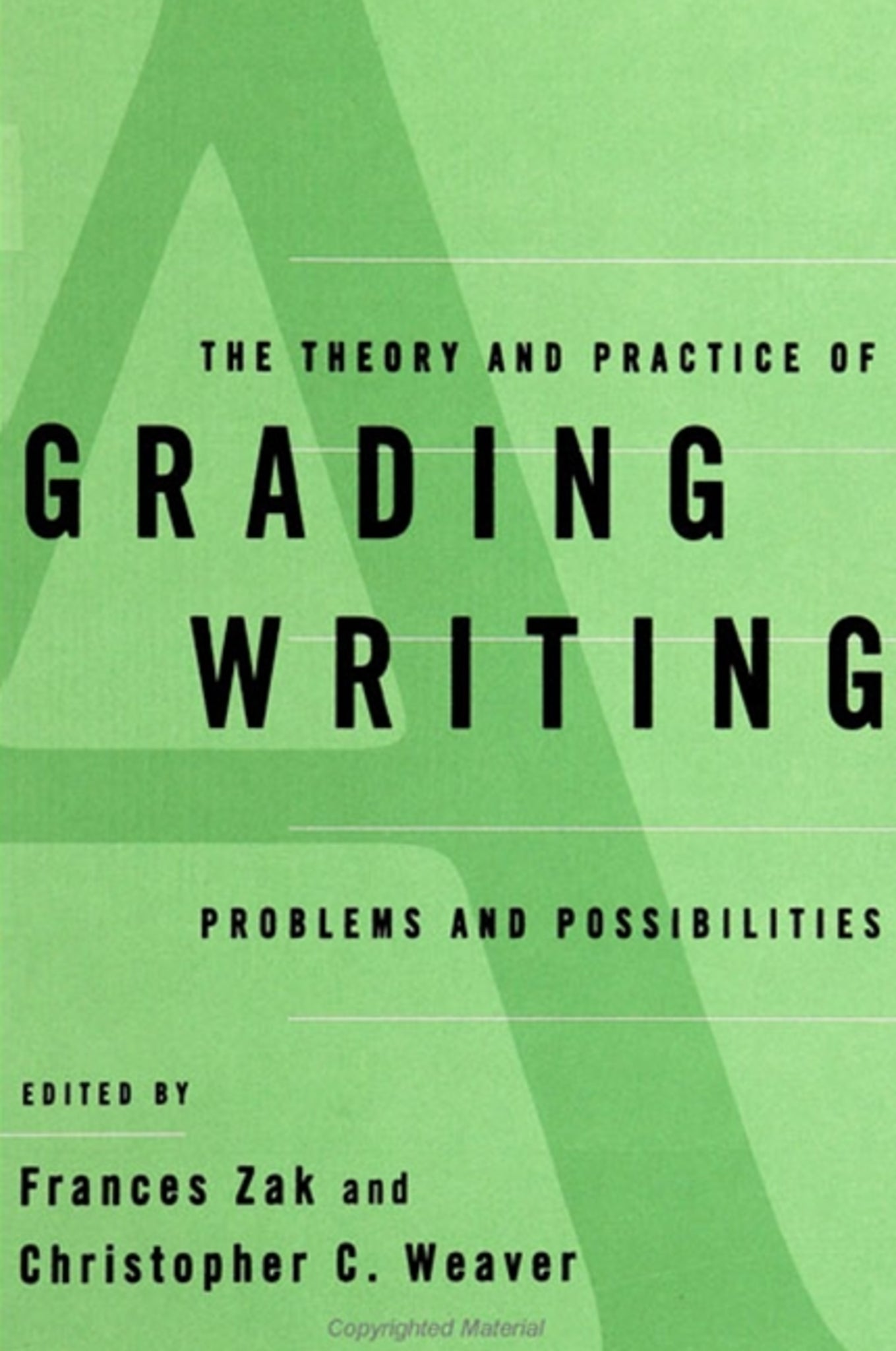We're sorry. An error has occurred
Please cancel or retry.
The Theory and Practice of Grading Writing

Some error occured while loading the Quick View. Please close the Quick View and try reloading the page.
Couldn't load pickup availability
- Format:
-
05 February 1998

Explores grading strategies for English composition teachers that are consistent with modern discourse and pedagogical theories.
CHOICE 1997 Outstanding Academic Books
Grading is one of the thorniest issues writing teachers must deal with, yet, surprisingly little has been written on this topic. As writing teachers move increasingly toward practices that focus on writing as a process, they face a growing need to reconsider their systems of grading to determine whether or not these systems support their pedagogies. The authors interrogate the grading of individual papers as well as portfolios and the assigning of end-of-term grades. This collection explores the issues and problems that have emerged as conventional grading practices have lagged behind and been challenged by new theories of language. While the book will be of interest to theorists, Zak and Weaver have also made the book relevant and useful to teachers whose primary interest is the practical consequences of theory in their classrooms. Where theoretical discussion takes place, the language is clear and accessible. Many of the authors write directly from personal experience, telling stories of the classroom or writing of new techniques and approaches they have tried. They speak with the voices of teachers, and the tone and content of their words convey a sense of the immediacy of the topic.


"While other books are in print that focus more generally on assessment and evaluation, we are lacking scholarly publications on grading. This collection fills a niche that has needed filling for quite some time. I think anyone interested in assessment and evaluation of writing would want this book—and that means most of us. I would find this text very important for teacher training and teaching assistant seminars." — Sherrie Gradin, Portland State University
Foreword
Pat Belanoff
Preface
Frances Zak and Christopher C. Weaver
Acknowledgments
Part I. Directions and Misdirections
Student Voices
1. The Origins and Evolution of Grading Student Writing: Pedagogical Imperatives and Cultural Anxieties
Richard Boyd
2. Direction in the Grading of Writing? What the Literature on the Grading of Writing Does and Doesn't Tell Us
Bruce W. Speck and Tammy R. Jones
3. Do We Do What We Say? Contradictions in Composition Teaching and Grading
Bruce Maylath
Part II. The Power and Authority of Graders
Student Voices
4. Construction, Deconstruction, and (Over)Determination: A Foucaultian Analysis of Grades
Kathleen Blake Yancey and Brian Huot
5. Peter Elbow and the Cynical Subject
Michael Bernard-Donals
6. Differences of Opinion: An Exchange of Views
Peter Elbow and Michael Bernard-Donals
Part III. How Students See Grades as Signifiers
Student Voices
7. Grading as a Rhetorical Construct
Nick Carbone and Margaret Daisley
8. Resisting Reform: Grading and Social Reproduction in a Secondary Classroom
Steven VanderStaay
Part IV. Institutional Entanglements
Student Voices
9. The Politics of Cross-Institutional Grading: An Adjunct's Dilemma
Pauline Uchmanowicz
10. The Politics and Perils of Portfolio Grading
Maureen Neal
Part V. Imagining Alternatives
Student Voices
11. Grading in a Process-Based Writing Classroom
Christopher C. Weaver
12. Gender and Grading: "Immanence" as a Path to "Transcendence?"
Irene Papoulis
13. Grade the Learning, Not the Writing
Cherryl Smith and Angus Dunstan
14. Changing Grading While Working with Grades
Peter Elbow
15. The Conversation Continues: A Dialogue on Grade Inflation
Kathleen Blake Yancey, Michael Bernard-Donals, Margaret Daisley, Maureen Neal, Steven VanderStaay, Nick Carbone, and Brian Huot
Works Cited
About the Contributors
Index



